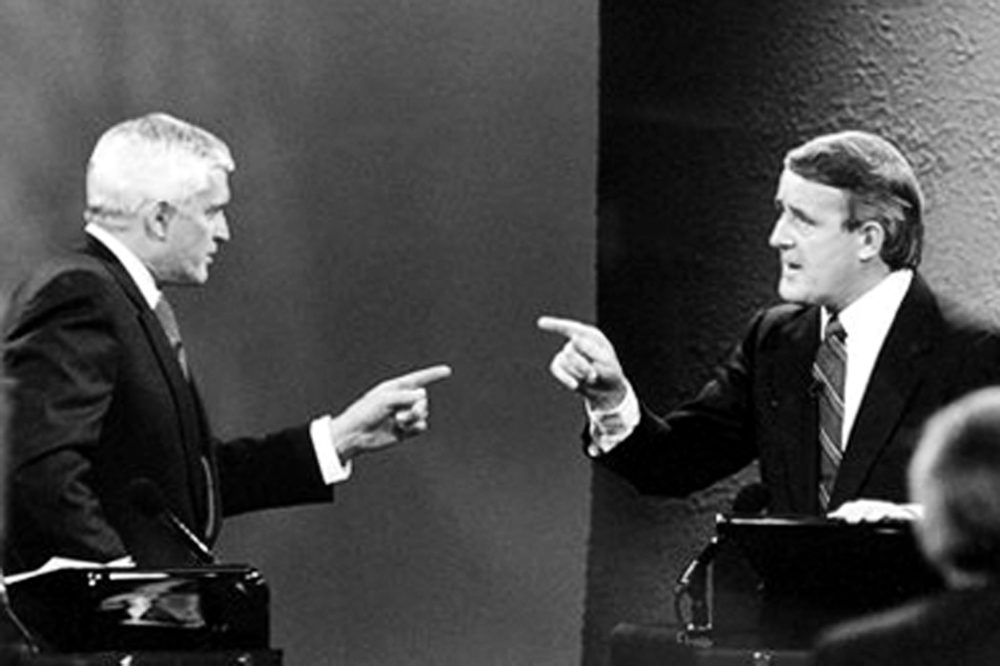COLUMN: Carillon Flashback November 23, 1988 – Tories win back-to-back majority
Advertisement
Hey there, time traveller!
This article was published 27/04/2025 (232 days ago), so information in it may no longer be current.
The Conservative Party made history in Monday’s federal election. It was the first time a Tory government was able to secure a back-to-back majority since John A. MacDonald did it 130 years ago. It is also the only time a government has won an election over the issue of free trade with the United States.
Back-to-back majority governments have certainly not been the norm in Canada and have not been seen at all since Louis St Laurent’s Liberals of the 1950’s.
For Brian Mulroney, Monday’s 170-seat parliamentary mandate is not only a stunning personal triumph, but irrefutable evidence that his vision of Canada as a nation of two founding people, and languages bound in loose confederation of strong provinces is one many people identify with.

Mulroney has shown the Conservative Party can win seats in every region of a sprawling country.
In a post-election editorial, Carillon editor Peter Dyck said, “Such is the depth of the Conservative strength that it might be safe to predict their reign could last into the next century.”
The opposition Liberals and New Democrats have only a marginal hold on certain regions and it could be years before their strength becomes a national force again, Dyck added.
John Turner did double Liberal representation in the House of Commons, but was able to do so only through a highly-emotional, one-issue campaign based on blocking free trade with the United States.
Had it not been for this single issue, the Liberals may have been headed to oblivion. At the same time, Ed Broadbent’s New Democrats, despite their redoubled efforts in Quebec, have again shown they have little support beyond Western Canada, and remain firmly rooted as a third party. This is so much in evidence, that Broadbent asserts the country is headed towards a two-party system.
With a renewed mandate, Brian Mulroney has all he needs to pass the free trade agreement and press for full provincial ratification of the Meech Lake Accord. The free trade debate for now has been silenced at the ballot box and the government can proceed with its agenda in the full confidence of a healthy Conservative majority.
The unprecedented focus on free trade left open for discussion, not only the merits of the deal itself, but two very different visions of Canada from which the electorate could choose.
National Health Minister Jake Epp, who again doubled the votes on his Liberal opponent in Provencher, agrees the election of a majority does indeed give the Conservative government the mandate to proceed with the Canada-U.S. free trade agreement.
Epp, relected by an 8,000 vote margin over Liberal challenger Wes Penner, said the election had become a referendum on free trade.
“Former Manitoba premier Howard Pawley and Liberal leader John Turner both said they wanted to fight an election on the issue.”
Epp went on to say that free trade is neither nirvana or catastrophic, but is in the vision of Canada, which sees the country as providing people with an opportunity to improve themselves.
Epp said his personal priorities for the new government include the establishment of a homemakers’ pension and maintenance of the health care system.
– with files from Peter Dyck
